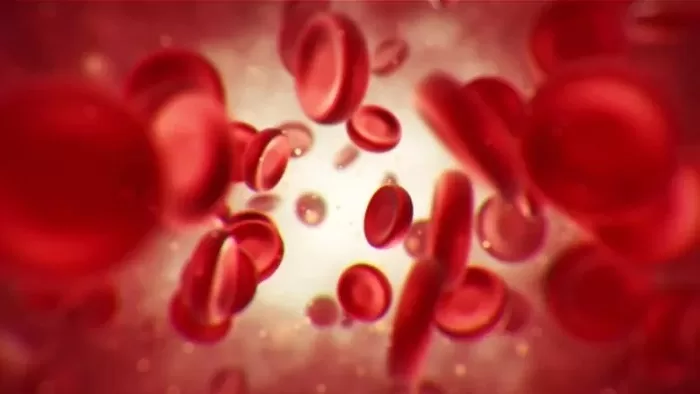Health
Life-Changing Gene-Editing Therapy for Beta Thalassaemia Launched by NHS

- The NHS is offering a groundbreaking gene-editing therapy for beta thalassaemia, potentially eliminating the need for lifelong blood transfusions by reprogramming stem cells to produce fetal hemoglobin.
- This therapy, utilizing CRISPR technology, has shown promising results in clinical trials and offers hope for a cure, with NHS England making it available at a reduced cost for eligible patients.
As a breakthrough in the field of medicine, the NHS will soon offer the first treatment for gene editing as a possible cure for the blood disorder known as beta thalassaemia. The treatment is based on extracting and reprogramming stem cells to make blood, repairing the genetic defect, after which, the altered cells are returned back to the body of the patient. It could remove the requirement for transfusions of blood every three to five weeks.
Understanding Beta Thalassaemia
Beta Thalassaemia is an inherited disease that affects hemoglobin production, the red blood cells that are responsible to carry oxygen throughout the body. This disease is genetic and is caused by a defect in the genes involved in hemoglobin creation. People with this condition often suffer from extreme fatigue, weakness, and shortness of breath and a reduced life expectancy.
Kirthana Balachandran, 21 who was diagnosed when she was only three months of age, talks about the devastating effects of the condition: “The idea of depending on transfusions for quite literally the rest of my life is daunting, I constantly worry about my future.”
How Gene-Editing Works
This treatment employs a technology known as CRISPR that was awarded the Nobel Prize for Chemistry in 2020. CRISPR is a type of satnav that is connected to a pair of scissors. One part concentrates on a particular section of the DNA and another performs the editing. Instead of correcting the defect in genetics immediately, the treatment makes use of the body’s naturally produced various types of hemoglobin prior to and after birth.
During fetal development, the body makes “fetal hemoglobin” to extract oxygen from the mother’s bloodstream. Following the birth, a gene switch is put into motion, and the body begins making “adult hemoglobin.” In patients suffering from beta thalassaemia it is only adult hemoglobin that can be deficient. The treatment blocks the switch, dubbed BCL11A. This causes the body of an adult to begin producing the fetal hemoglobin it was producing previously.
In order to achieve this process, stem cells that make the red blood cells can be extracted from bone marrow of the patient. The cells are then sent into a laboratory, in which the gene switch is focused on. Prior to reintroducing the altered cells into their patients, they undergo chemotherapy in order to destroy the original stem cells which produce defective hemoglobin.
Real-Life Impact
Abdul-Qadeer Akhtar, 28, was a participant in the clinical trials as of 2020. While describing the treatment as “challenging” and “tough,” Akhtar has noticed significant improvements: “[I] have even taken up boxing, I can travel more freely now, which is fantastic, I’m eager to embrace life to the fullest.” Research indicates that 51 out of 52 patients that received the treatment didn’t require another transfusion of blood for at least one year. The long-term consequences aren’t known.
Kirthana is optimistic about the treatment: “With gene therapy, I may be able to find a cure without having to undergo the three weekly transfusions I receive. It could change my life. treatment.”
Financial and Logistical Aspects
The National Institute of Health and Care Excellence (NICE) has given the treatment its approval, acknowledging the therapy as a “potential cure” after evaluating the benefits and costs. The official cost is PS1.6 million for each patient, NHS England has negotiated a lesser cost. About 460 patients older than 12 will be eligible for this treatment, and it can be found at seven centers of expertise within a few to several weeks.
Amanda Pritchard, the NHS chief executive, explains the significance of this news: “This is a historic moment for people living with beta thalassaemia with a potential cure for those facing this debilitating disorder now available on the NHS.”
Looking Ahead
Beta Thalassaemia is a condition that primarily affects people from Mediterranean, South Asian, South-East Asian as well as Middle Eastern descent. Prior to that, the only alternative to blood transfusions that were regular was stem cell transplants and required a closely-matched tissue match from the donor, and thus was uncommon. Casgevy was developed by Vertex, the company that developed it, is the first therapy approved that utilizes CRISPR technology.
Romaine Maharaj, as head of operations for the UK Thalassaemia Society, states, “We stand on the brink of a revolutionary breakthrough,” and explains the treatment as “a beacon of hope.”
Negotiations are in progress to decide whether the same treatment could be utilized in the NHS for a second genetic disorder that affects hemoglobin, namely sickle cell anemia. This is a major improvement when it comes to treating genetic blood disorders that can provide an opportunity to improve the living conditions for many people.




















































